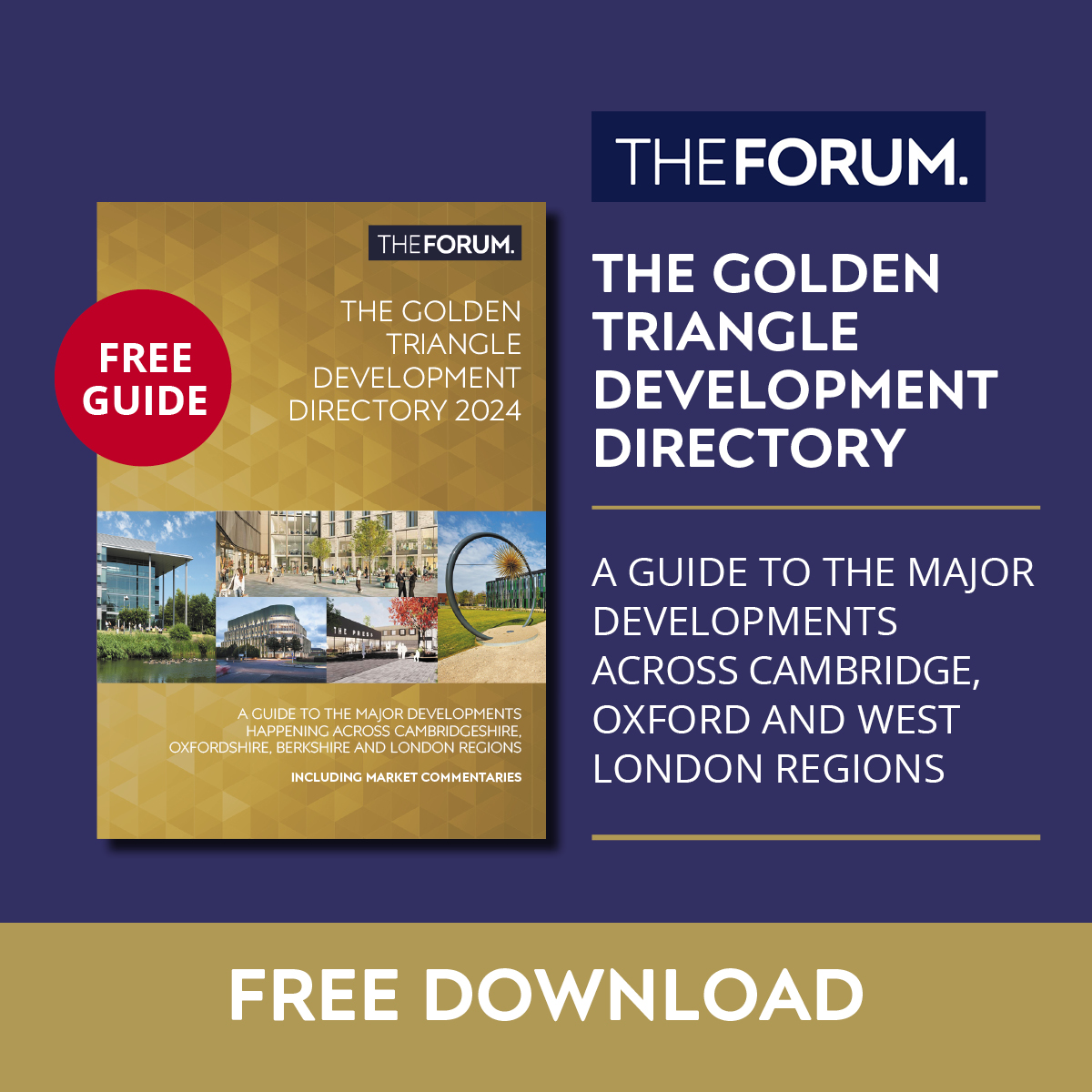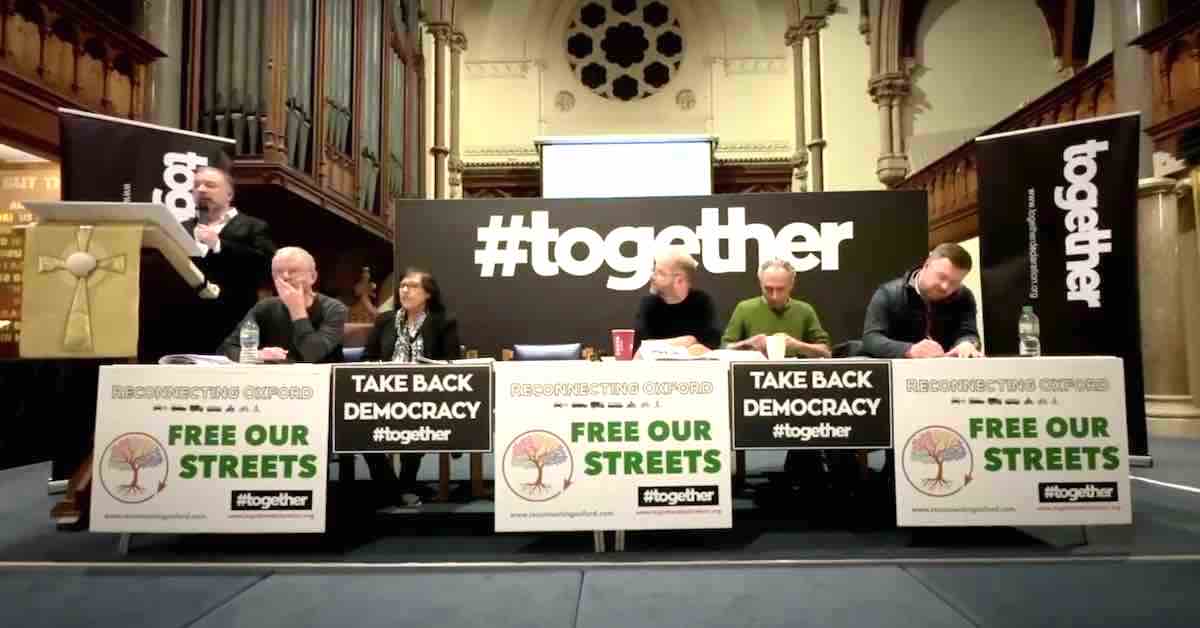Around 250 people gathered last week to protest about traffic filters and low traffic neighbourhoods (LTN) in Oxford.
A rally by the Together Declaration and Reconnecting Oxford at Wesley Memorial Church on Thursday, March 9, heard from a panel including Clinton Pugh, father of actor Florence Pugh. He faces a £2,500 fine for displaying a sign opposing the measures at one of his cafés.
He was one of a panel of participants who took aim at Oxfordshire’s LibDem/Green Alliance-run county council.
Mr Pugh (pictured second from right) told the meeting 1.2 miles of roads had been closed due to LTNs and that they were harming small businesses.
He said: “The reality is these poor people will probably go bust.
“I’m campaigning to try and speak up for the small businesspeople that are very badly affected. For most of them, English is a second language. They daren’t say anything. I understand. If I lived in another country I probably wouldn’t complain if I didn’t feel it was my home first of all.
“These poor people, if you look at the desperate look in their eyes, most of them can’t afford to get involved because they need to spend all their time running their businesses.”
Former Labour county and city councillor Jamila Azad (pictured second from left) said the LTNs had torn and divided the community and reported cases of emergency vehicles getting stuck.
She said: “As an Asian Muslim woman, I know that religious communities have been ignored in the consultation and we know so many in our community that sadly no longer visit the mosque in East Oxford.”
Conservative Independent Alliance councillor on the county council Cllr Liam Walker (pictured right), who is a former cabinet member for highways, asked for a show of hands from those who completed the Central Oxfordshire Travel Plan consultation in which traffic filters were proposed.
He then told those people: “I want to apologise as this week has revealed you took part in, I’m afraid, a sham consultation.
“It didn’t matter how much time you spent on that consultation, it didn’t matter how many opinions you gave, it didn’t matter whether you objected or supported it, because, as we now know, the decision was made eight months ago. They already knew what they were going to do.”
In a rallying call to sum up the meeting Alan Miller, co-founder of the Together Declaration, (pictured left, standing) told delegates: “If enough people get out and convince friends, neighbours and work colleagues, this can be won. This is not entirely about a consensus, this is about a majority.”
He said smart cities would mean monitoring, regulating and surveying people and would cause a loss of privacy.
He added: “The war on cars is a war on our independence and a war on our freedoms. When did we negotiate our ability to make those choices.”
In a statement, Oxfordshire County Council said: “Oxfordshire County Council is committed to equality and integrity in all its operations and values the diversity of Oxford.
“We are continually engaging with our communities. The east Oxford low traffic neighbourhood (LTN) area is a trial. Formal consultation has now closed but the council continues to listen to feedback.
“Feedback from residents and businesses will contribute to the reporting presented to the county council’s cabinet for decision later in 2023, on whether to continue with the LTN area. The county council is confident that last year’s traffic filters public consultation and decision making process to implement a trial was sound.
“The information provided enabled almost 6,000 people to give their views. After the consultation, changes were made to the traffic filters proposal based on people’s feedback.
“Consultation is one part of the decision making process and feedback is reviewed alongside other information when decisions are made in the council’s public meetings.
“The filters will be implemented as a trial, as part of an experimental traffic regulation order (ETRO), after works to improve Oxford Station are completed by Network Rail in late 2024.
“The main opportunity for the public to give views on an ETRO is during the six-month consultation period once the trial has started. During the trial, monitoring data will be published so respondents will be able to draw on both measured data and their own experiences when giving their views.
“This will help us to understand the impact of the filters in real time so we can adapt our plans during the trial, where needed, and, together with consultation outcomes, this will help inform the decision on whether to continue with them.”
© Thames Tap (powered by ukpropertyforums.com).
Sign up to receive our weekly free journal, The Forum here.









